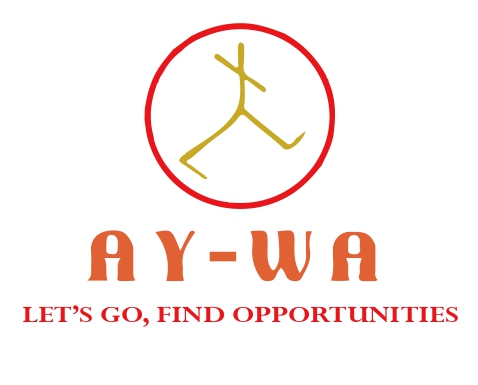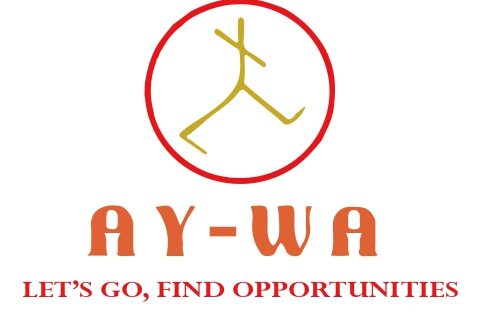While we keep hearing about the “meaning of work”, there have never been so many empty words to describe it. With neologisms, anglicisms, euphemisms and misuses, the language of work is becoming impoverished. Two consultants, Muriel Bellivier, an occupational psychologist, and Sarah Proust, an associate expert at the Fondation Jean-Jaurès, look at the reasons for this phenomenon and its consequences.
This is an interesting paradox: never before have we heard so much about the ‘meaning of work’ and yet never before have we used so many meaningless words to talk about it.
Collective intelligence, relational/non-violent/assertive communication, agile mode, project mode, work experience, facilitation, inspirational manager, motivational management, innovation games, benchmark, wording, storytelling, chief happiness officer, office manager, resilience (in all its guises), team-building, smart, challenger, feedback, reporting, REX, workshop, collaborative, and so on. Neologisms, anglicisms, euphemisms, misuses, the choice of a harmonious and positive lexical register, the language of work is being transformed and its meaning impoverished. It is not being impoverished because fewer words are being used to talk about it – on the contrary, there is an abundance of them – but because these words ring hollow, clattering like a slogan, like an advertisement for modern work, free of the rags of toil. It’s hard to understand where they come from, to what history they relate, how they emerged and, by the same token, it’s hard to understand them at all. They don’t say anything about the activity, they don’t allow employees applying for jobs to understand what they are going to do and those who work to understand what they are contributing to.
What has happened to make the new words of work so empty, so quickly and easily invited into our professional exchanges? What are the consequences?
Let’s put forward an initial hypothesis. In the 1990s and 2000s, scandals erupted about mistreatment at work, organised by managerial systems based on performance and profitability. The subject got a lot of media coverage. Work began to be seen and talked about as a place of suffering and no longer as a place of tension between emancipation and alienation.
Nothing was going to last very long if work was only seen as a place of suffering. So we had to “re-enchant work”. And how better to do this than by adding games – play areas in companies, cooking activities, escape games, quizzes at company seminars, team-building – and supposedly more modern and relaxed Anglo-Saxon words – wording, asap, workshop -, new job titles – office manager, work experience director -, euphemistic expressions and words imported from other lexical registers. Work, too often associated with an etymology (widely disputed) of torture, was to become easy, light and pleasant. In this hypothesis, the function of hollow words here would have been to seek to transform perceptions by drawing a picture of work as a provider of individual well-being.
Let’s put forward a second hypothesis. The 2000s were a global upheaval in more ways than one – economic, geopolitical, technological – and the world of work was affected by these transformations. The 2000s symbolically sounded like the advent of a new world, separating individuals and activities between two centuries and two millennia, those of the old world and those of the new. Everything had to change, everything had to become more modern, more attractive, faster, more accessible. It was as if we had to live up to a new millennium, as if it had to be the millennium of the ability to do everything with ease, with that famous ‘agility’, the cardinal value of any self-respecting company. In this hypothesis, the hollow words would have had the function of anticipating a new world, of creating a gap between the ‘in’ and the ‘out’, those able to understand and handle them and those who would remain distant from them and whom the world of work would not catch up with.
The third hypothesis is that most of the words we are criticising have one thing in common: they evoke the collective and an egalitarian collective. Everything must be co-constructed, co-decided, co-managed, co-elaborated. It seems to us that this is the logic behind the attenuation of the idea of subordination. We are witnessing a new posture of the leader who has become a manager: “I don’t make authoritarian decisions, I co-decide; I’m not a leader who is distant from my teams, I play various games with them as part of a convivial atmosphere; I don’t challenge an employee’s proposal, I challenge an employee’s idea; I no longer need an executive assistant, I’m recruiting an office manager (who won’t be managing anyone); I’m not a leader, I’m trying to be an inspiring manager”. Many managers express difficulty in exercising authority. And the reason is simple: they don’t have the delegated authority to exercise it. The larger the organisation, the greater the number of delegations of authority that need to be shared between more people! Many managers then become team leaders, forced to get people to work thanks to the goodwill of others and to find a language that casts a discreet veil over this reality: to have the title of leader without the attributes, to be a leader without looking like one, to be directed while having the impression of deciding.
In addition, the use of words to stage an imaginary collective is intended to counterbalance the multiplication of isolated functions and the dispersal of functions. The tertiarisation of work, the slow disappearance of identifiable collectives (blue-collar workers, foremen, bosses, office staff, etc.) replaced by isolated functions and vague jobs in giant organisation charts, needed to be masked by a semblance of a collective.
Whatever hypothesis we adopt – the most likely being that all of them combine – the impoverishment of the language of work is not insignificant.
The meaning of work is a topical issue, and one that is itself poorly named and abused. We want to talk about work using words that have meaning, that cover realities and that enable us to understand each other.
There are three concepts that we feel are particularly important to name and understand: management, structuring and participation.
Firstly, management cannot simply be a promotion in a career. It is a specific skill that cannot be reduced to being the meeting point between common sense and good listening. Management is about mastering complex human issues, it’s about the ability to take decisions in the service of collective production, it’s about the ability to organise, set and evaluate individual and collective work.
Secondly, the structuring and organisation of a team need to be distinguished. We can see how much companies and administrations are trying to fit the two into one and the same scheme. They spend a lot of energy – and sometimes a lot of money – drawing up an organisation chart that seeks to set out a clear team structure. A modern organisational chart seeks to reduce all hierarchical elements by favouring bubbles, groups that do not touch each other, and which ultimately neither say anything about the working relationship, nor prevent the machine from pushing down instructions and procedures in a just-in-time flow. Now, an organisation chart, i.e. a structure, has to answer three questions: where does everyone fit in, who reports to whom and for what? Naming those with real decision-making power and not cleverly mixing hierarchical and functional links is an essential first step.
Thirdly, it is fortunate that employee participation in a certain number of decisions is implemented in organisations. But this participation, which takes the form of “co” – whether co-elaborative, collective, co-decision-making – is very rarely clear in its intentions, objectives or results. Participation can take a variety of forms, but it must in any case answer three questions at the start of the process: who and what are we proposing to participate in, and does this participation concern an advisory opinion, a decision or a joint elaboration? “Participative” should no longer be associated with “management”, but with a work object.
Making it clear how industrial relations work, being clear about the role of each person individually and collectively, and enabling management to move the work forward – these are the three necessary challenges, to be carried out well, to be named well, to work well. Then we will be better able to talk about work.


